Spices are essential to flavourful West African cooking. They give our soups, stews, and dishes their authentic flavor and show a mastery of flavor. This blog post provides two essential spice blends you can use to make a plethora of West African recipes with details on substitutions and flavors. Plus a bonus recipe when you scroll down.
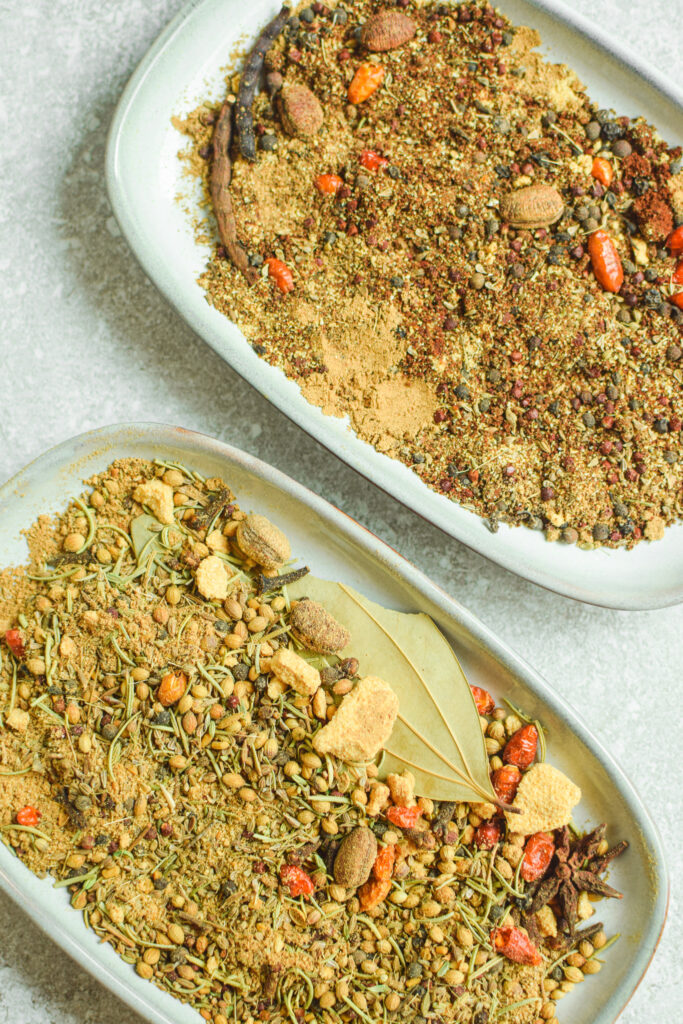
What are essential West African Spices?
The use of spices in West Africa is its own culinary subfield. Depending on where you are in the region, you will see various spices (both indigenous and imported) used to a different extent. Fermented locust beans (also known as iru, sombala, dawa dawa, ogiri), or grains of selim (also known as uda or hwentia) are used from Senegal right to Nigeria. Whereas some spices like calabash nutmeg, country onion, or Aidan fruit are used in a local context. For this post, most of the focus will be on Ghanaian spice blends because of my heritage but these can be used for various West African recipes.
If you want more details about each type of spice, their flavor profile, and recipe ideas, make sure to check out this blog post (Important Spices).
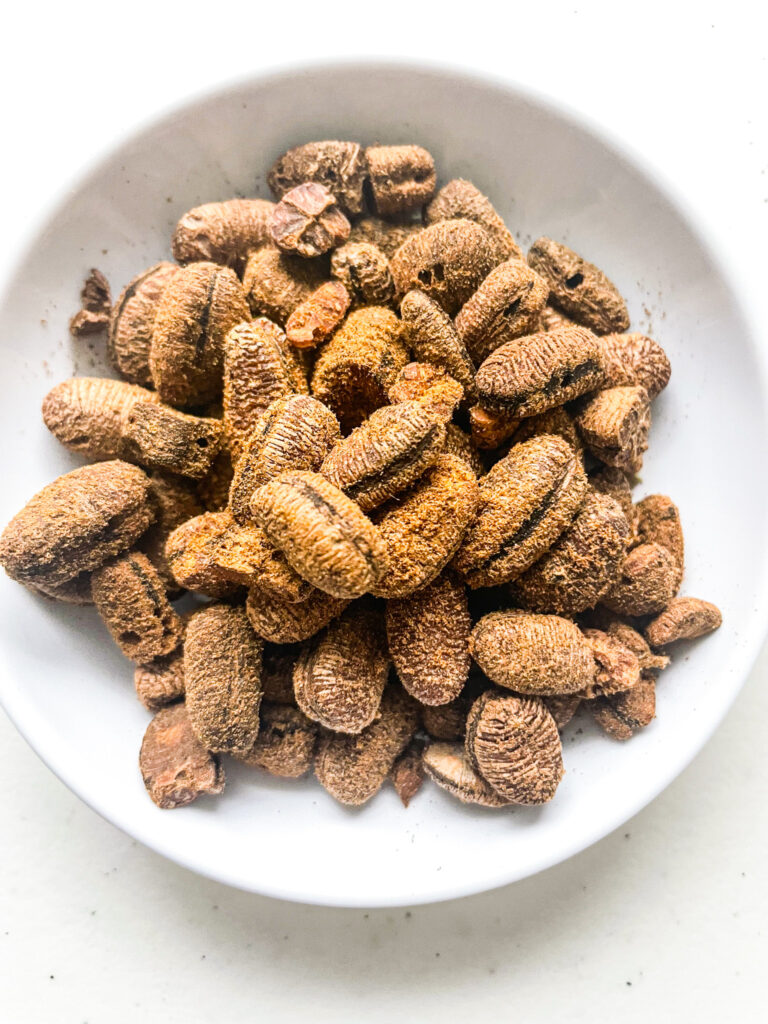
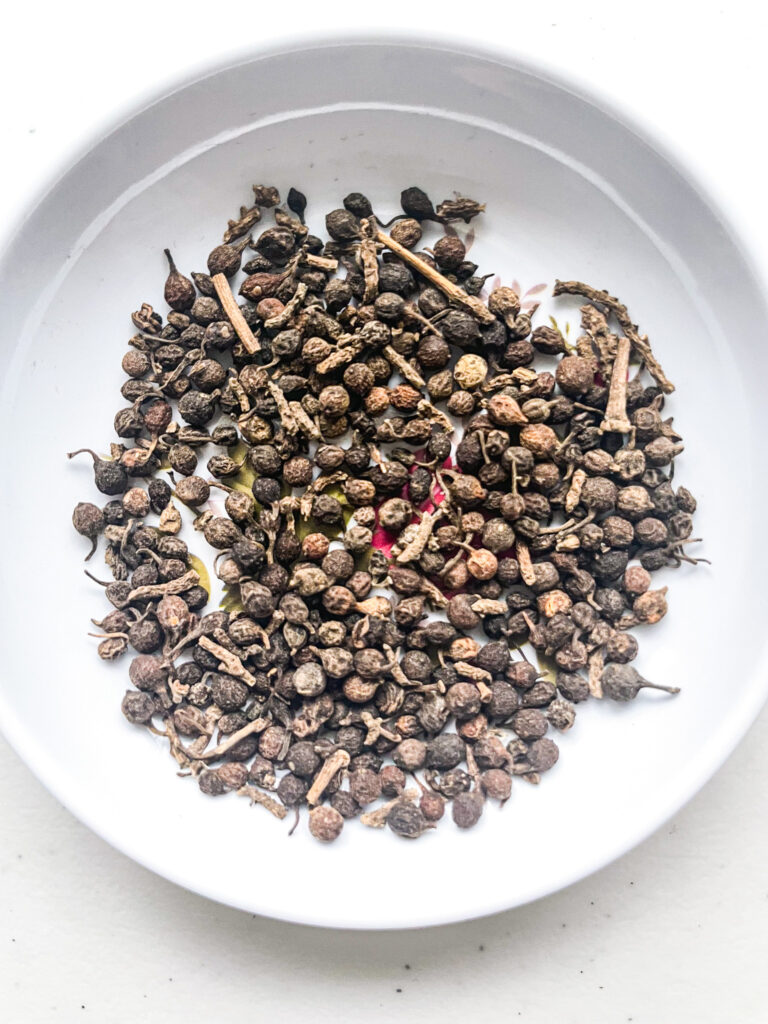
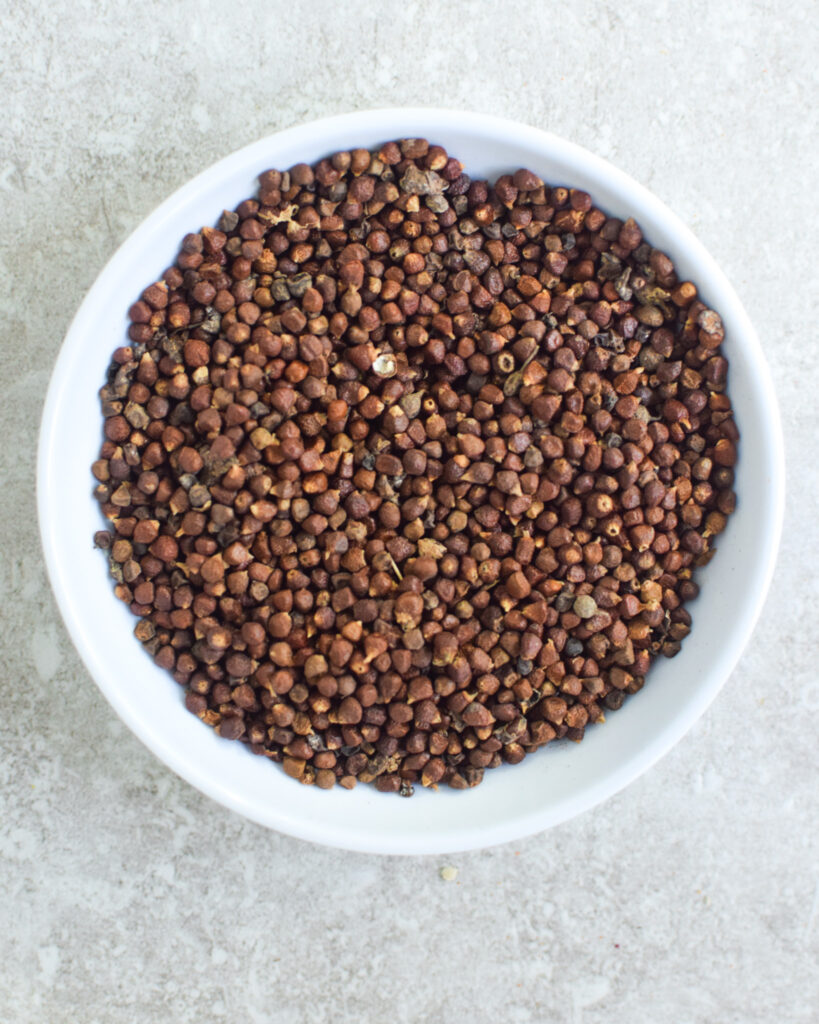
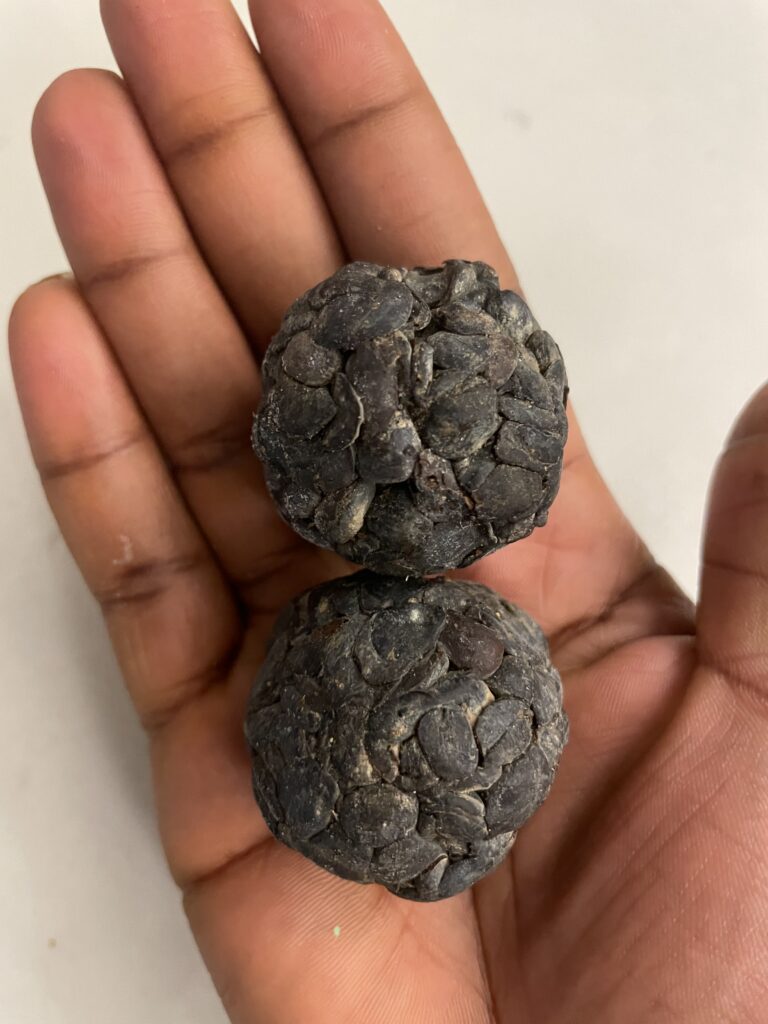
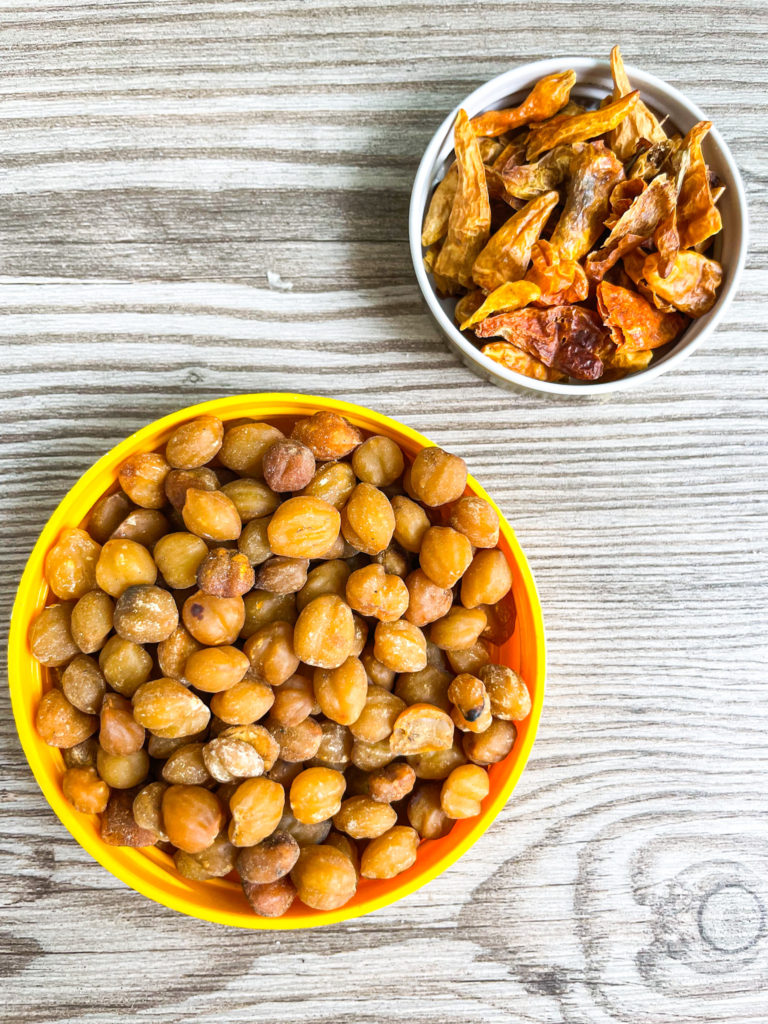
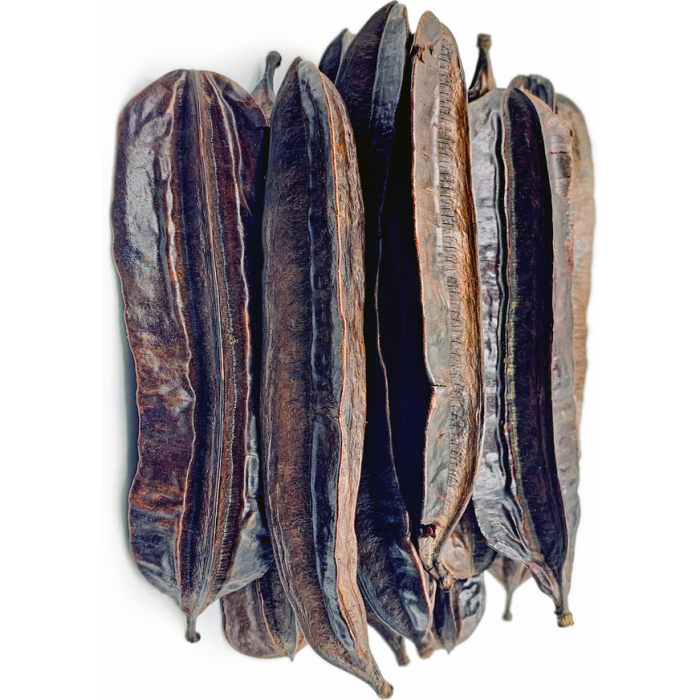
I use a traditional coffee grinder as my spice grinder to get everything into a fine powder. Please check out the image to purchase on amazon (affiliate link)
Where do you find these spices
If you live in a metropolitan area, West African stores are your best option.
For online options in Canada, MyChopChop is a great option. You can also check out Zoe’s Ghana Kitchen (England) or Ekaterra Co (North America). Etsy and Facebook Marketplace are also fantastic locations to find West African ingredients.
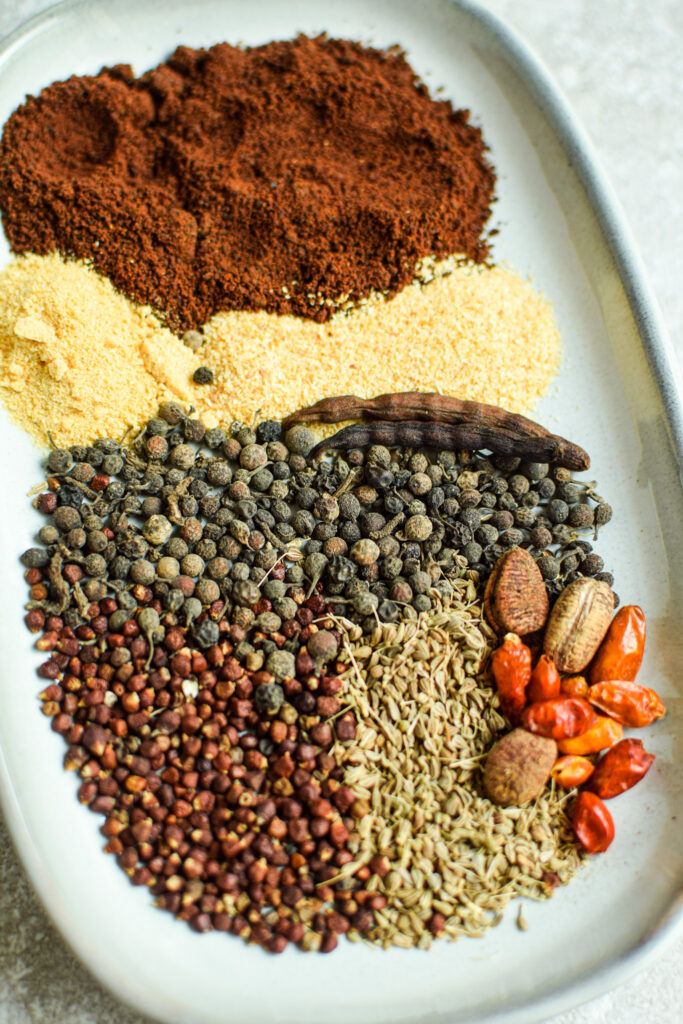
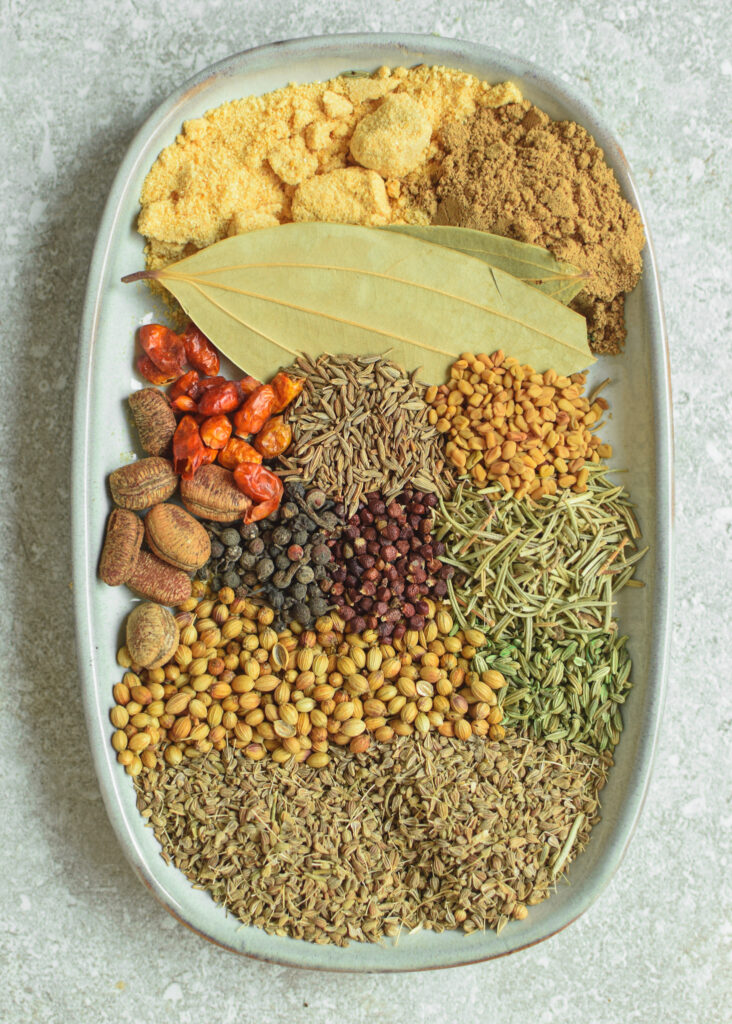
2 Essential West African Inspired Spice Blends
Ingredients
Ghanaian all purpose seasoning
- 2 tbsp Anise seeds
- 1.5 tbsp Ginger powder
- 1.5 tbsp Onion powder
- 1.5 tsp Rosemary
- 1 tsp alligator pepper efom wisa/grains of paradise
- 1 tsp cloves
- 6 calabash nutmegs hwediaba/ehuru
- 2 bay leaves
- 1 tsp dried chillies
- 2 tsp coriander seeds
- 1.5 tsp cumin seeds
- Salt to taste
West African Umami Seasoning
- 2 tsp powder fermented locust beans iru/dawa dawa/soumbala
- 1.5 tsp anise seeds
- 1.5 tsp guinea cubeb esoro wisa/uziza seed
- 1 tsp alligator pepper efom wisa
- 1 tsp onion powder
- 1 tsp garlic powder
- 1.5 tsp ginger powder
- 3-4 small African bird's eye chillis mesua
Instructions
- Measure out the spices for each spice blend
- Grind in a coffee/spice grinder
- Store in an air tight container
Notes
- Calabash nutmeg: Although listed as a nutmeg, it doesn’t taste like nutmeg. Feel free to increase the quantity of cloves by 1/2 a tsp or completely omit
- Aligator Peppr: This pepper has a sharp and bright pepper flavor. Feel free to substitute with white or pink peppercorn
- Guinea Cubeb: Although it looks like a black peppercorn, it has a slightly different flavour, almost with a citrus undertone. Feel free to substitute with lemon pepper or black peppercorn with a dash of dried lemon powder
- Fermented Locust Beans/Dawa Dawa: Unfortunately this one is not substitutable, it has a unique smell and flavour. If you cannot find the powder and only find it frozen or dried, feel free to give it a good rinse; dry it in a dehydrator, on your counter or in the oven at a low setting, then turn it into a powder.
BONUS ALL-PURPOSE SEASONING!
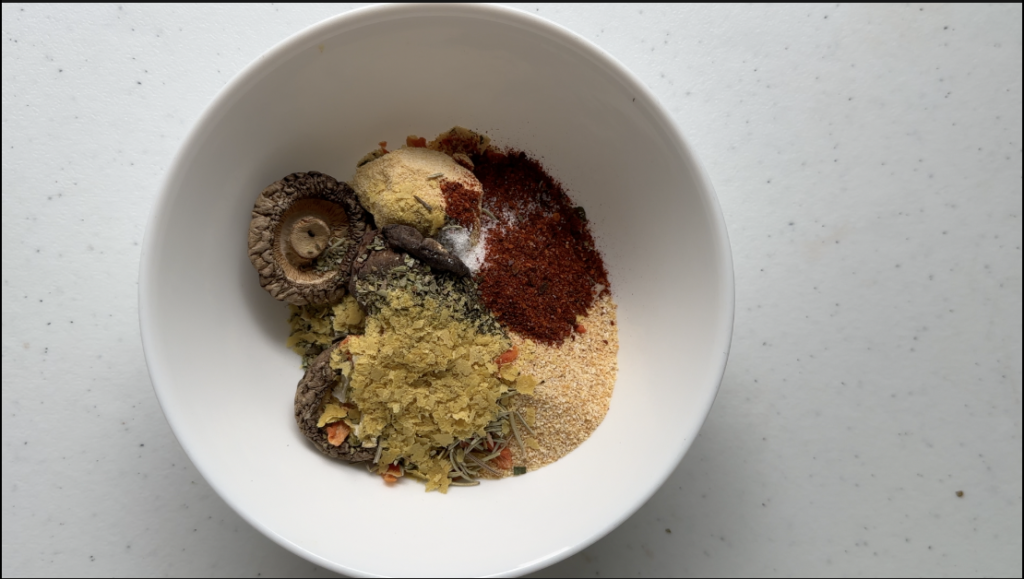
Homemade All Purpose Seasoning
Ingredients
- 4 tsp Dehydrated vegetables
- 2 tbsp Garlic
- 2 tbsp Onion
- 1 tsp dried Parsley
- 1 tsp Rosemary
- 3 dried shiitake mushrooms
- 1 tsp Oregano 1tsp
- 1/2 tsp paprika
- 2 tsp Nutritional yeast
- 1/2 tsp MSG optional
Instructions
- Measure out all the ingredients and grind in a spice/coffee grinder

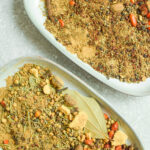
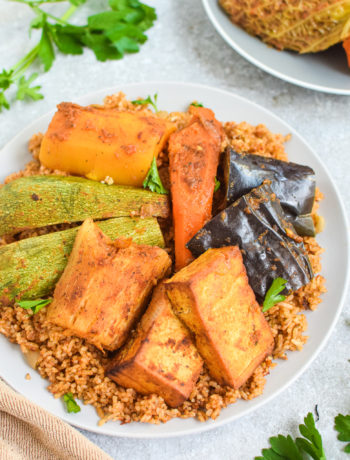
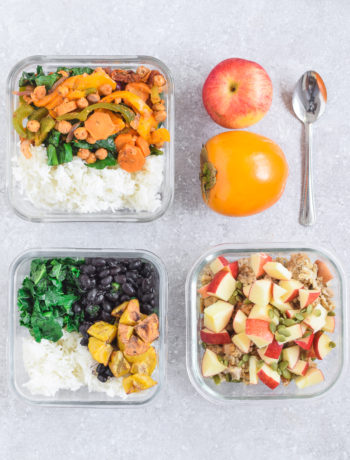
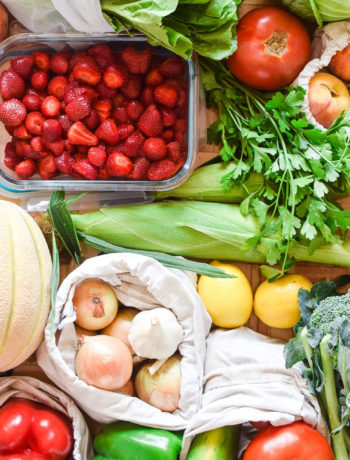
No Comments